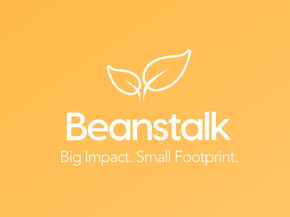Local Entrepreneurs Bring Farming Indoors
Local Entrepreneurs Bring Farming Indoors
Beanstalk Co-Founders Jack and Michael Ross | Credit: Jack Ross
Julie Zink | Thursday, October 19, 2017
Two local entrepreneurs are seeking to revolutionize farming, reduce energy expenditures and increase productivity by bringing their crop-growing indoors.
Beanstalk Farms is a Charlottesville-based agricultural technology company that produces scalable, automated and sustainable vertical farms. Its innovative model grows greens such as spinach, kale and arugula in a fog of oxygenated water and nutrients.
LEARN MORE:
With shipping container, Fidelis Greens fuses technology, farming
“If we can stack [our farms] and put them indoors, we can put them anywhere in the world,” said Jack Ross, co-founder of Beanstalk.
The goal, Ross said, is to re-create and control the natural environment in an indoor setting, eliminating the need for transportation and increasing efficiency of resources.
Ross, a graduate of the University of Virginia School of Engineering and Applied Science, co-founded Beanstalk with his brother Michael Ross, a graduate of Georgia Tech’s School of Aerospace Engineering. They wanted to apply their interest in energy and their skills as engineers to address problems they saw in the agriculture industry.
The idea was sparked in the spring of 2016 during a trip the brothers took down the Pacific Coast Highway. Driving past miles of California farmland, they began to debate how much energy was being used to grow the produce they were seeing.
After research and calculations, they saw room to innovate for more efficient use of agricultural resources.
The solution they came up with involves an indoor farming model that revolves around aeroponics.
Jack Ross
Plants grown through aeroponics “actually sit in air,” Jack Ross said. Throughout most of the growing process, the plants’ roots are suspended in highly oxygenated air, allowing them to grow more quickly, he said.
Water and nutrients are then delivered to the roots through fog. In traditional aeroponics, fog is delivered through nozzles. Beanstalk’s distinctive model generates nutrient- and oxygen-rich fog without the use of nozzles, which can become clogged.
Ross cites the unique fog mechanism as the company’s “competitive advantage.”
They create fog in a central location and then disperse it throughout their indoor facility through a series of ducts.
Their model also ensures that each part of the growing process, “all the way from planting the seed through the harvest,” is automated, eliminating a need for manual labor and ensuring consistency across crops.
By bringing their produce indoors, Beanstalk can “mitigate a lot of the risks that plague [the] current farming industry. We always know that we’re going to have the appropriate amount of water, we’re going to have the appropriate amount of sunlight,” Ross said.
Controlling an indoor farming environment allows Beanstalk to increase production and reduce costs. According to Ross, their indoor farming model uses 98 percent less water than traditional farming and allows plants to grow faster in ideal, year-round conditions.
While a head of lettuce can take between 70 and 80 days to grow in the ground, “in [a Beanstalk indoor farm], it will take about 30 days,” Ross said.
Growing mostly greens, Beanstalk hopes to get as many as 12 harvests a year, compared with only two or three harvests that would be possible from the ground.
“We are much more efficient per square foot while also conserving a lot of resources,” Ross said.
Beanstalk created its first vertical farm prototype earlier this year and is now on its fourth and largest prototype to date.
Their farm, located at the i.Lab at UVa, produces between 150 and 200 pounds of lettuce each month. It is about 7 feet tall and takes up 8 square feet of floor space.
Jason Brewster, director of the i.Lab, said the Rosses “spent a lot of time initially planning and thinking about their novel approach to scaled, indoor farming.”
“They’ve done a lot of prototype development. There’s a lot of electronics involved,” Brewster said. “It’s very exciting to see it coming together.”
The company’s biggest challenge right now is to perfect its mechanization and ensure that its technology can be easily manufactured.
Moving forward, Ross said they hope to begin development of Beanstalk’s first full-scale farm in January. They are in the process of looking for warehouse space in Charlottesville to house the farm.
“We’re hoping to be within the city limits,” Ross said.
Ross said mentors from the i.Lab and the Charlottesville community have provided valuable guidance and support in the company’s continued development.





